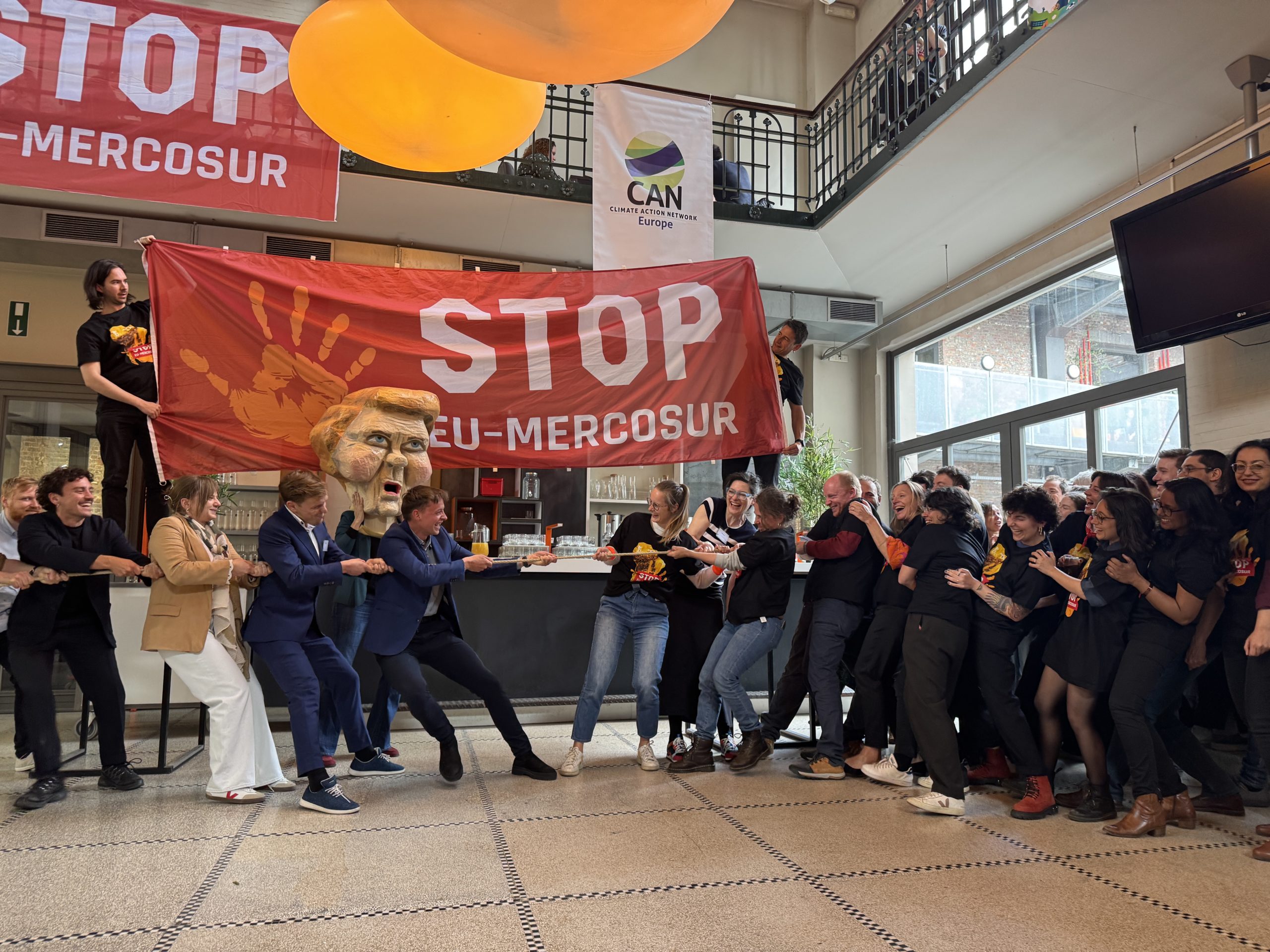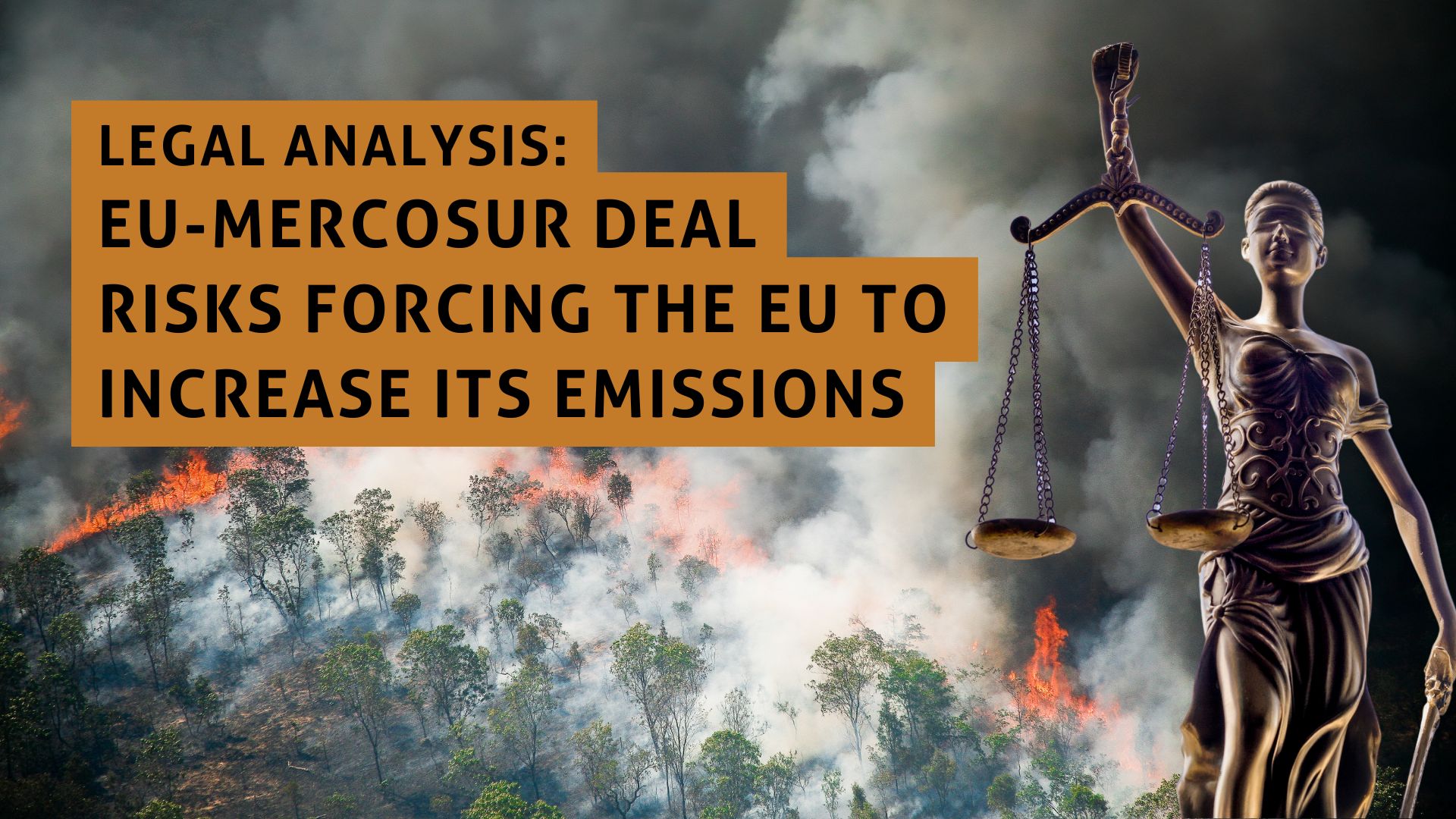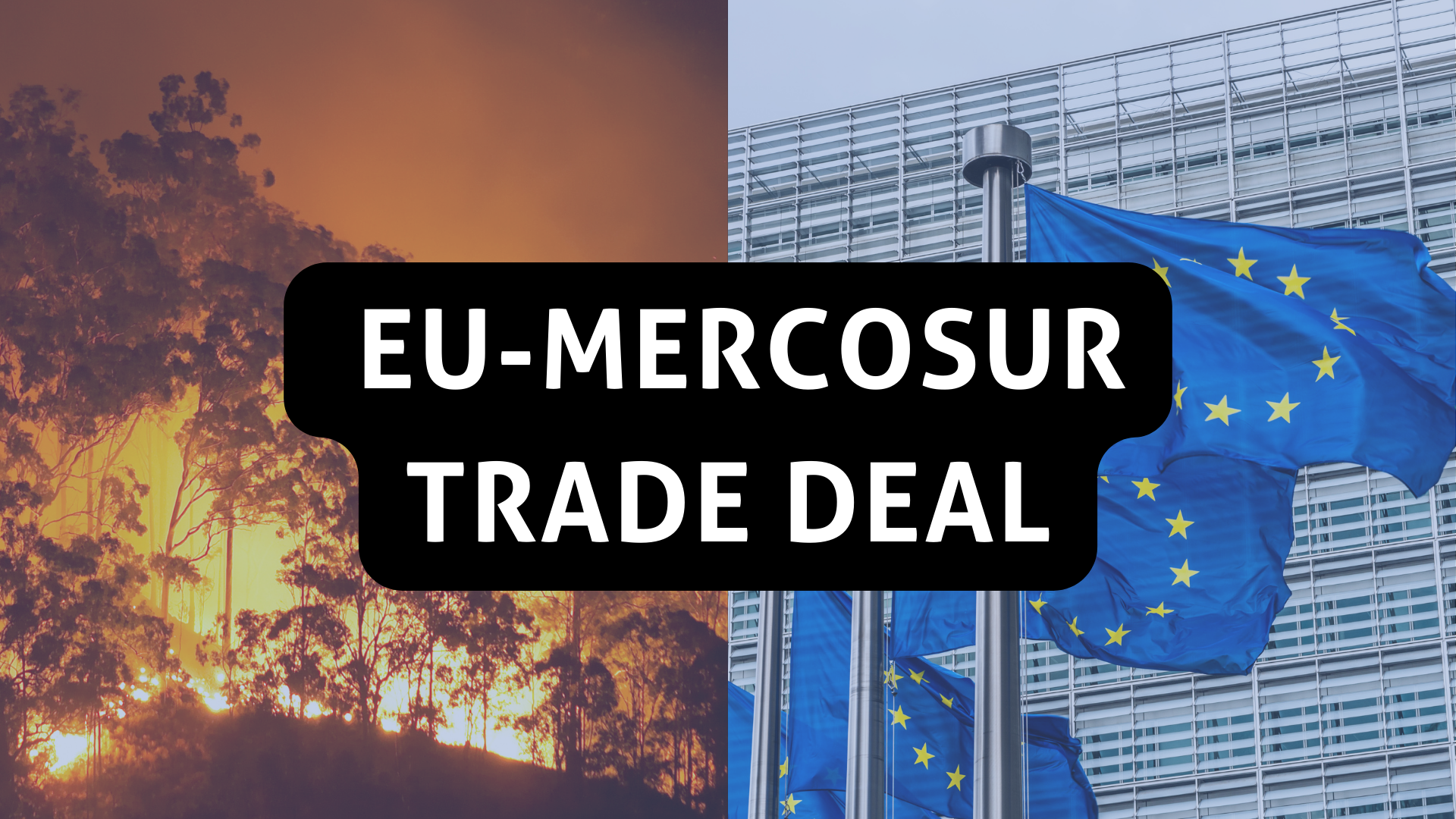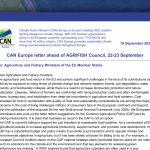3 September 2025—Following weeks of silence, the European Commission today sent the final text of the controversial EU-Mercosur trade deal to the EU Member States and the European Parliament. The Commission had reached a political agreement with the Mercosur countries, including Brazil, Argentina, Paraguay and Uruguay, in December.
The publication of the final text paves the way for the crucial ratification stage. As expected, the European Commission is attempting to fast-track this by splitting the trade pillar of the deal, separate from the political part, into a so-called interim trade deal. With the splitting, the approval of the EU-Mercosur trade agreement only requires a qualified majority in the European Council and then a majority in the European Parliament. Member states are no longer able to veto it, and parliaments at the national level have no say on the ratification of the deal.
Changing the voting process would allow the Commission to bypass national parliaments that are critical of the deal, excluding democratic scrutiny and public debate at the national and regional level. This comes at a time when the EU institutions have already criticised the Commission several times for a lack of transparency around the deal.
Audrey Changoe, Trade and Investment Policy Coordinator at Climate Action Network Europe, says:
“By splitting the deal, the Commission is trying to sneak the EU-Mercosur agreement in through the back door. This goes against the negotiation mandate that was given to the Commission, which was to negotiate on the basis of a mixed agreement to strengthen political relations with the Mercosur countries. It’s an anti-democratic trick designed to silence the large-scale protests by farmers, the public backlash to the deal, and the clear opposition of several EU countries. Splitting the deal constitutes an outrageous abuse of power by the Commission and could even be challenged at the European Court of Justice. The member states, even those supporting the deal, should stand up for democracy and invoke the Commission’s failure to comply with its negotiation mandate.”
CAN Europe, together with hundreds of civil society organisations as well as EU and national parliamentarians, have condemned the splitting manoeuvre as an assault on democracy.
Rebalancing mechanism risks a regulatory chill
The deal would force the EU to contribute to rising global emissions due to the increased trade in emission-intensive goods, while on the Mercosur side, Brazil recently passed a devastating bill drastically weakening environmental safeguards—a significant setback for the country’s environmental legislation in the past 40 years. On top of that, Brazilian authorities suspended the soy moratorium in the Amazon rainforest.
Laura Restrepo Alameda, Advocacy Coordinator at Climate Action Network Latin America, said:
“The EU should build trade partnerships rooted in mutual respect, environmental integrity, and a shared commitment to sustainable development. There is no resilient economy on a scorched planet.
The most concerning part of the deal is the inclusion of the rebalancing mechanism, pushed by the Mercosur countries. This risks pressuring the EU countries into weakening their climate and environmental regulations and causing a regulatory chill on both sides. The European deforestation legislation is among the files most at risk.”
Geopolitics and negligible economic gains
What is new in the final text is the inclusion of the so-called “safeguard” measures for the agricultural sector. These were included in order to address the demands of several critical countries, including France, Poland and Italy, over the risk of unfair competition towards EU farmers, in relation to cheaper imports of agricultural products. The measures that supposedly should better protect farmers are vague and only apply for a maximum duration of 4 years, not solving the structural issues the deal will have on the EU’s food sovereignty and on small- and medium-scale farmers. Farmers have been some of the most vocal opponents of this free trade agreement, as it risks pushing them even deeper into the economic struggle.
The European Commission argues that the deal will increase trade with Mercosur countries, particularly in the context of trade tariff retaliations by the Trump administration, even though studies and the Commission’s own impact assessment show the economic gains of this deal are negligible.
Audrey Changoe from CAN Europe says:
“Under the motto of never waste a good crisis, the European Commission is using the tariff retaliation by Trump’s administration and geopolitical context as another opportunity to push for the EU-Mercosur deal. The insignificant economic gains stand in stark contrast with the economy-wide effects this deal will have on the planet and people, particularly on Indigenous communities. Instead, the EU should focus more on strengthening its economic autonomy and internal market, not on free trade agreements undermining this.
Notes to the Editors:
- The EU-Mercosur agreement is a mixed agreement, because it contains a trade part (competence of the EU) as well as a political and cooperation pillar (shared competence with the Member States). As a mixed agreement, trade concessions should be framed in a broader political agreement. The ratification of mixed agreements requires a vote in the European Parliament and a unanimous vote from EU governments in the Council. This means every member state has a right to veto. Furthermore, the deal must also be ratified by EU member states in accordance with their constitutional requirements, which include approval by national and regional parliaments.
- This goes against the negotiating directives given to the European Commission by the Council in 1999 and the Council Conclusions of 2018. The whole process of scrutiny of the EU-Mercosur deal was based on the common understanding that Member States would have a veto either in the Council or through the ratification at the national level. The Commission is now shortcutting this process. This would create procedural pitfalls and potentially violate the European Treaties. Read more at the Legal Analysis (section 5).
For more information and media requests:
Jani Savolainen, Communications Coordinator at Climate Action Network Europe (CAN Europe)
jani.savolainen@caneurope.org, +358 504667831
Karina Saravia, Communications coordinator at Climate Action Network Latin America (CANLA)
ksaravia@canla.org, +505 8433 1292
Interviews available in EN, FR, ES, NL, PT, DE




